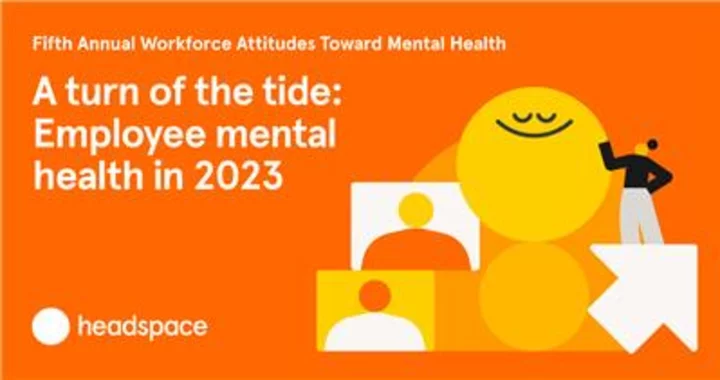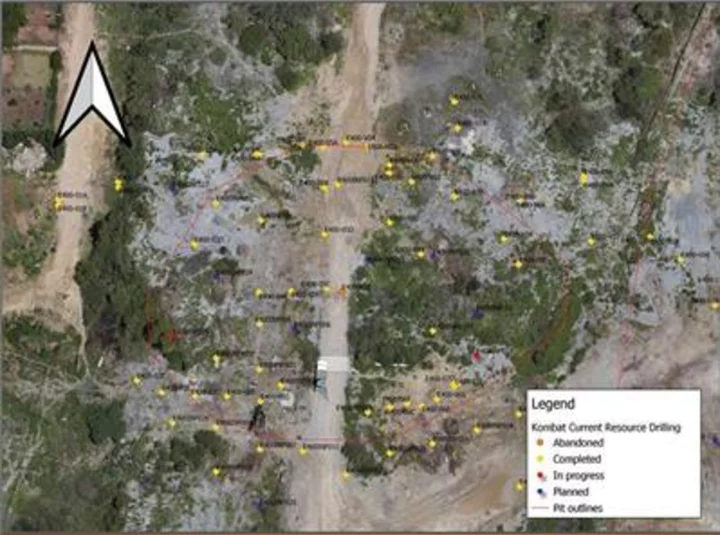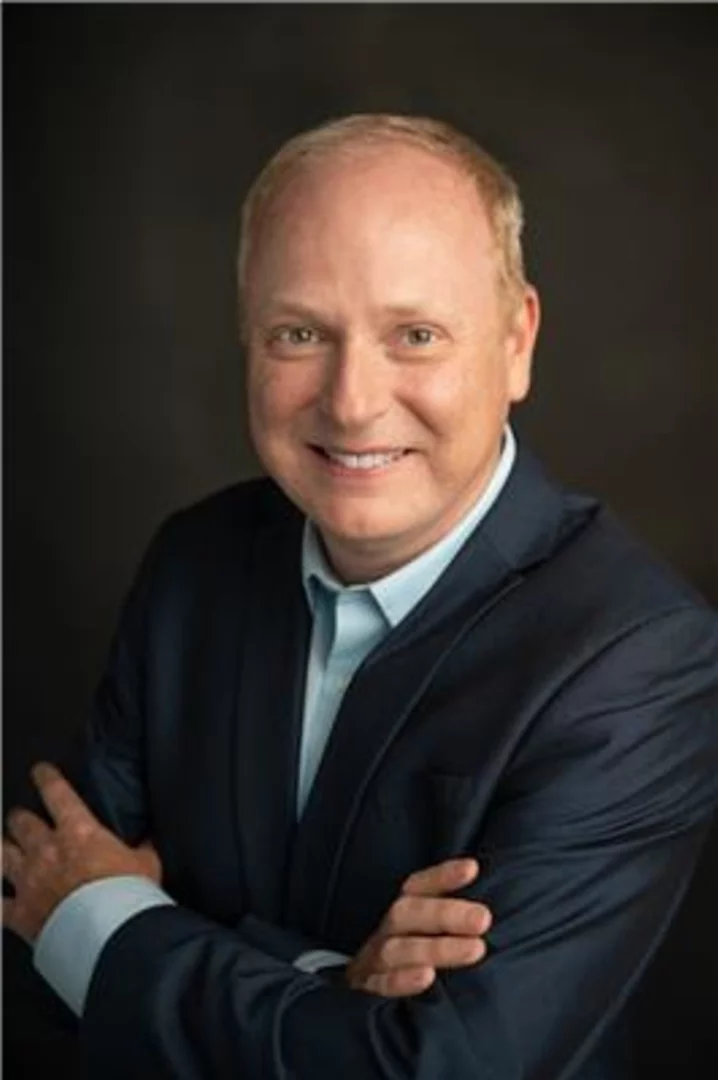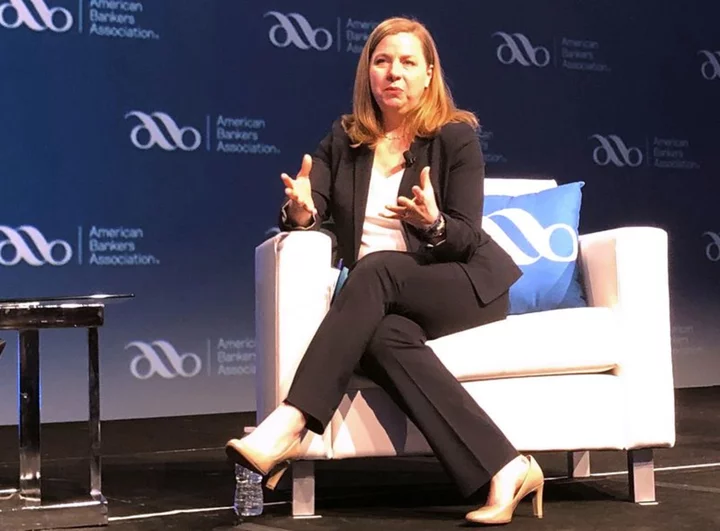SANTA MONICA, Calif.--(BUSINESS WIRE)--May 9, 2023--
Headspace, the provider of the world’s most accessible, comprehensive mental health platform, today released its Fifth Annual Workforce Attitudes Toward Mental Health Report revealing new data on the perceptions of CEOs, HR leaders, and workers on mental health. Based on a global survey fielded between February and April 2023, the report compiles data from more than 400 CEOs and 4,000 workers in the U.S., Australia, Germany, and the U.K. to examine workplace issues driving stress and burnout among CEOs and their employees. Headspace also surveyed more than 250 HR leaders in the U.S. and U.K. on the unique stressors faced by people leaders with benefits decision-making.
This press release features multimedia. View the full release here: https://www.businesswire.com/news/home/20230509005129/en/
Headspace released its Fifth Annual Workforce Attitudes Toward Mental Health Report, revealing new data on the perceptions of CEOs, HR leaders, and workers on mental health. (Graphic: Business Wire)
Instability, productivity pressure, and rising expectations for all groups surveyed are driving feelings of dread in the workplace.
- 89% of employees say they have felt moderate to extreme stress over the past 12 months, with nearly half (49%) saying they feel a sense of dread at least once a week.
- The top drivers of dread are lack of stability creating a constant feeling of unpredictability at work (45%); being overwhelmed by expectations to take on more job responsibilities (45%); and higher expectations and fear of not being able to meet them (42%).
- Gen Z workers report the highest levels of dread compared to their peers – as do non-binary workers, when compared to their male and female counterparts.
- Over a third of workers (38%) say fear of their job being replaced by technology is a top driver of dread, and Gen Z is the most worried.
CEOs share the workplace angst, leading to an increasing commitment to supporting the mental health of themselves and their teams.
- CEOs report feeling more dread (59%) on a weekly basis than their employees, with a leading cause of that stress being economic uncertainty (61% among U.S. CEOs).
- Economic uncertainty is leading to fears amongst workers. 75% of global employees worry that their leaders will cut back on mental health and benefits support in a recession, but 64% of CEOs say they would actually increase these benefits in a recession.
- A growing number of CEOs are speaking up about the state of their mental health; 87% are doing so this year. 95% of CEOs agree that they’re a better leader when their mental health is strong, and 90% take advantage of the emotional and mental health benefits that their company offers.
HR leaders are caught in the middle between emotional caregiving for employees and a hyper focus on the bottom line.
- 37% of U.S. HR and benefits leaders say they are experiencing dread at work due to burnout from emotional caregiving responsibilities of employees, and 34% report dread due to being overwhelmed by expectations to take on more job responsibilities as well as worry that they won’t be able to meet expectations (30%).
- 94% of HR leaders feel an increasing responsibility to improve company culture by supporting employee mental health; yet, HR leaders use mental health benefits less than any other group surveyed.
- While 91% rate their mental health benefits program positively, only 41% of HR leaders use mental health benefits regularly, compared to 64% of CEOs and 73% of employees.
Diversity, equity, inclusion, and belonging (DEIB) efforts have a positive impact on employee mental health, particularly against a backdrop of polarizing global events.
- Over half of global workers (54%) say their employer’s DEIB policy has a positive impact on their mental health. This is especially true for marginalized groups – non-binary employees, for example, are more likely to say they are positively impacted by their companies' DEIB policy (75%) – but also true for white (50%) and male (52%) employee populations.
- The vast majority of employees (97%) say global events like war, economic uncertainty, political uncertainty, and acts of violence impact their mental health at work.
- For those in the U.S., one in four employees say police brutality takes a toll on their mental health, and one in five cite gun violence as another factor impacting their wellbeing at work.
The gap between CEO and employee sentiments around mental health is closing.
- 91% of CEOs and 89% of employees agree that their company sufficiently supports the mental health of its employees compared to 94% and 67% (respectively) in 2022.
- Favorable CEO sentiment towards their mental health benefits has remained at 94% year over year, but employee sentiment has significantly increased to 96%, up 20 percentage points from 2022 (76%).
“Workplace mental health continues to be a top three business priority, with employees and CEOs experiencing frequent levels of stress due to market uncertainty and growing workplace pressures,” said Russell Glass, CEO of Headspace. “In response, companies must not only ensure they have robust mental health and wellbeing programs in place, but that their leaders are tending to their own mental health, fostering open conversations with their teams, and helping to reduce stigma in the workplace.”
“HR teams play an especially important role in supporting the emotional wellbeing of employees as they navigate a dynamic and uncertain external environment,” said Elaine Beddome, Senior Vice President, Compensation, Benefits and Employee Mobility at HP. “Headspace’s research clearly demonstrates that HR leaders need to set the tone for the organization by caring for our own mental health and encouraging others to do the same. At HP, we're proud to collaborate with Headspace to support the mental health and wellbeing of our employees and provide them with tangible tools to reduce burnout and build resilience. With the help of Headspace’s guided meditations, employees tell us they’re able to stress less, find their focus, and get better sleep, putting them in a better position to navigate life’s uncertainties.”
Using evidence-based interventions and technology and a human-centered approach to care, Headspace supports millions of workers worldwide with accessible and affordable mental health services. More than 4,000 enterprise and health plan clients have partnered with Headspace to provide employees and their dependents access to mindfulness and meditation tools, text-based behavioral health coaching, therapy, psychiatry, and EAP services.
For more information on the 2023 Headspace Workforce Attitudes Toward Mental Health report, visit get.headspace.com/2023-wfa.
About Headspace
Headspace is your lifelong guide to better mental health. We make mental health support accessible to everyone, no matter their background or experience. Through our flagship Headspace app, we provide mindfulness tools for everyday life, including meditations, sleepcasts, mindful movement, and focus exercises. Our enterprise offerings combine this experience with a human-centered model of care, with coaching, therapy, psychiatry, and EAP services under one roof. Our team of experts ranges from mental health clinicians, to Emmy award-winning producers and data scientists, working together as one to help millions of people around the world be healthier and more productive. To learn more, please visit headspace.com.
View source version on businesswire.com:https://www.businesswire.com/news/home/20230509005129/en/
CONTACT: Sara Lindsey
Senior Manager, Corporate & Enterprise Communications, Headspace
+1 919 802 8475
press@headspacehealth.com
KEYWORD: CALIFORNIA AUSTRALIA/OCEANIA AUSTRALIA UNITED STATES NORTH AMERICA
INDUSTRY KEYWORD: DATA ANALYTICS HUMAN RESOURCES GENERAL HEALTH HEALTH MENTAL HEALTH HEALTH TECHNOLOGY PROFESSIONAL SERVICES BUSINESS
SOURCE: Headspace
Copyright Business Wire 2023.
PUB: 05/09/2023 03:00 AM/DISC: 05/09/2023 03:01 AM
http://www.businesswire.com/news/home/20230509005129/en









